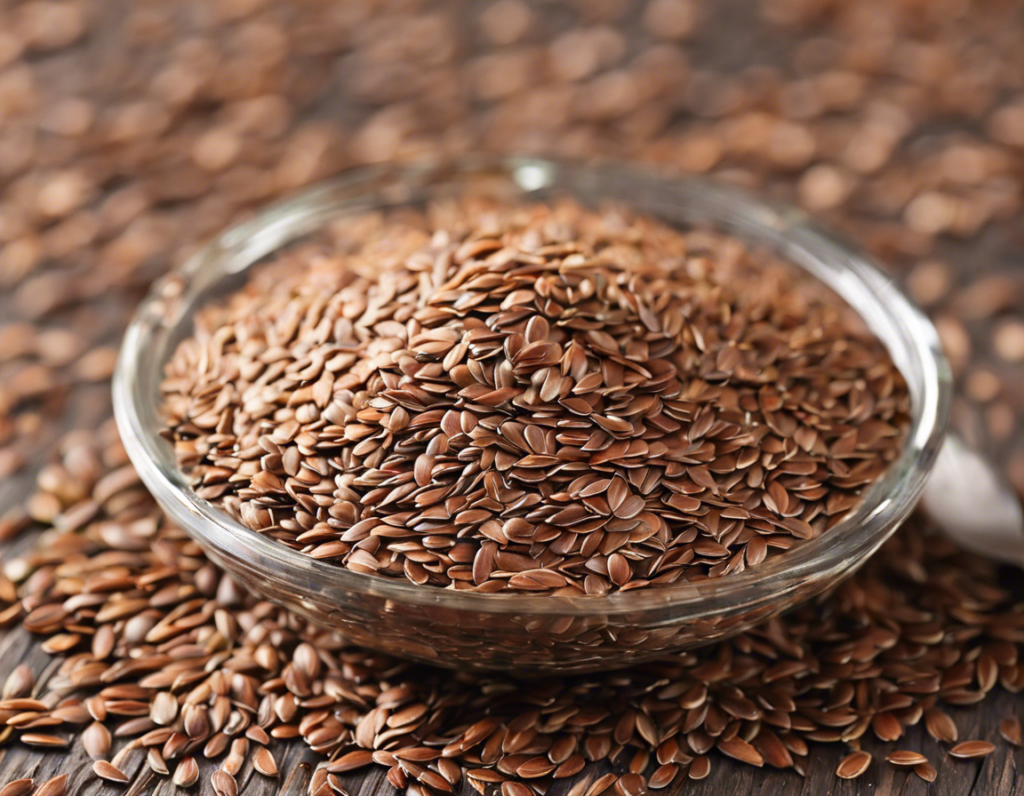फ्लैक्स सीड्स (Flax Seeds) का नाम सुनते ही हमारे मन में स्वास्थ्य के लाभ संबंधित सवाल उठते हैं। ये छोटे आकार के बीज हमारे शारीरिक और मानसिक स्वास्थ्य के लिए बेहद फायदेमंद होते हैं। फ्लैक्स सीड्स एक प्रकार की सुपरफूड हैं जो तेल, पोषक तत्व और विटामिन्स से भरपूर है। इन्हें हमारी दैनिक डाइट में शामिल करने से हमें कई स्वास्थ्य लाभ मिलते हैं।
What are Flax Seeds?
Flax seeds, also known as linseeds, are tiny, brown or golden seeds that come from the flax plant (Linum usitatissimum). They have been consumed for thousands of years and are known for their high nutritional value, particularly in terms of omega-3 fatty acids, fiber, and lignans.
Nutritional Profile of Flax Seeds
Flax seeds are a rich source of:
- Omega-3 Fatty Acids: Essential for brain health and reducing inflammation.
- Fiber: Helps with digestion and promotes gut health.
- Lignans: Antioxidant compounds that may help lower the risk of cancer.
- Protein: Important for muscle development and overall health.
- Vitamins and Minerals: Including B vitamins, magnesium, and manganese.
Health Benefits of Flax Seeds
1. Improves Heart Health
The omega-3 fatty acids in flax seeds can help lower cholesterol levels, reduce blood pressure, and decrease the risk of heart disease.
2. Aids in Digestion
The high fiber content of flax seeds can promote regular bowel movements, prevent constipation, and improve overall digestive health.
3. Supports Weight Management
Flax seeds are low in carbohydrates but high in fiber and healthy fats, making them a great addition to a weight loss diet.
4. Balances Hormones
The lignans in flax seeds have been shown to help regulate hormone levels, which can be particularly beneficial for women going through menopause.
5. Promotes Skin Health
The omega-3 fatty acids and antioxidants in flax seeds can help reduce inflammation and improve skin conditions like acne and eczema.
6. Boosts Immunity
The vitamins and minerals in flax seeds support overall immune function, helping the body fight off infections and diseases.
How to Incorporate Flax Seeds into Your Diet
-
Ground Flax Seeds: Grinding flax seeds makes the nutrients more bioavailable. Add them to smoothies, yogurt, oatmeal, or baked goods.
-
Flaxseed Oil: Use it as a salad dressing or drizzle it over cooked vegetables.
-
Flaxseed Meal: Replace a portion of flour with flaxseed meal in recipes for bread, muffins, or pancakes for added nutrition.
-
Flaxseed Water: Soak flax seeds in water overnight and drink the gel-like mixture the next morning for a fiber boost.
FAQs about Flax Seeds
1. Are flax seeds safe for everyone to consume?
Yes, flax seeds are generally safe for most people. However, some may experience digestive issues if consumed in large quantities.
2. Can flax seeds help with diabetes?
The fiber and omega-3 fatty acids in flax seeds may help regulate blood sugar levels, but individuals with diabetes should monitor their intake.
3. How much flax seed should one consume daily for optimal health benefits?
A general recommendation is around 1-2 tablespoons of ground flax seeds per day. It’s essential to gradually introduce them into your diet to avoid digestive discomfort.
4. Can flax seeds be used for weight loss?
Due to their high fiber content and healthy fats, flax seeds can be a helpful addition to a weight loss diet by promoting satiety and supporting digestive health.
5. Are there any side effects of consuming flax seeds?
In rare cases, some individuals may be allergic to flax seeds. It’s important to start with small amounts and monitor your body’s reaction.
Flax seeds are indeed a nutritional powerhouse that can offer a wide array of health benefits when incorporated into a balanced diet. Whether you sprinkle them on your morning cereal or blend them into a smoothie, these tiny seeds can make a significant difference in your overall well-being.
